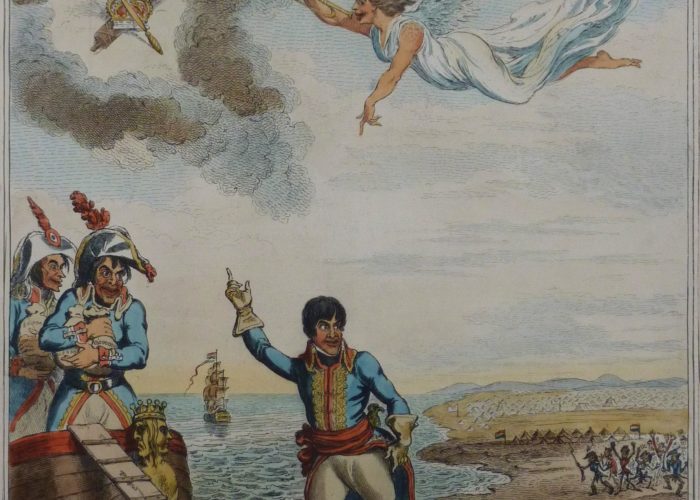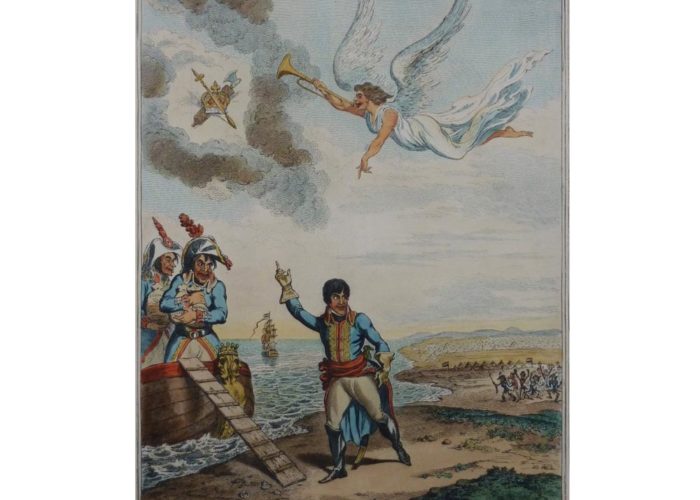Napoleon’s Departure from Egypt, 23rd March 1799
This cartoon, printed in London in 1800, takes a dim view of Napoleon’s departure from Egypt
When General Napoleon Bonaparte landed in Egypt on the 1st July 1798, he was motivated both by military and economic considerations but also by scientific curiosity. He had the blessing of the Directory for a campaign that would threaten the British position in India and protect French trading interests, but the intellectual motivation would seem to have come from Bonaparte himself.
The Battle of the Pyramids, fought on the 20th July 1798, not only established the superiority of the French army over the Mamelukes but also gave France possession of Egypt. Even the defeat of the French Navy by Nelson at the battle of the Nile at the beginning of August did not distract Napoleon from his determination to establish a route that would carry his army into India.
When the Ottomans decided that the French presence in Egypt could not be tolerated, Napoleon extended his military activities into Syria, successfully taking Jaffa in March 1799 but failing at Acre after a siege that lasted two months and saw British involvement in the form of a naval flotilla under the command of Sir Sidney Smith.
Napoleon then returned to Egypt, winning a final victory at Aboukir on the 25th July 1799. But his army was weakened both by its losses and by sickness, particularly the plague, which made the Indian project impossible to realise. Furthermore, news was arriving of an increasingly unstable situation in France, where the Directory, rife with corruption, had lost all popular support. On the 23rd August, accompanied only by a handful of trusted companions, he departed for France, leaving his army under the command of General Kléber.
Depending on one’s view of Bonaparte, one can see him as the saviour of France or a man who seized an opportunity for personal aggrandisement. This cartoon, printed in 1800, definitely takes the latter view. Despite the celestial figure summoning him to France and glory, his expression (to say nothing of his companions, who clutch sacks of cash) conveys a different message. In the background, desperate and notably emaciated soldiers protest in vain. Bonaparte himself is described as ‘the Deserter of the Army of Egypt’.
That demoralised army would remain in Egypt until 1801, when a British expedition under General Sir Ralph Abercromby would lead to their surrender.
As for Bonaparte, on the 7th/8th November 1799 he launched the Coup de 18. Brumaire. The result was the Consulate, with him as first Consul.
-
Use this image
You can download and use the high resolution image for use in a non-profit environment such as a school or college, but please take note of the license type and rights holder information below
- License Type: All Rights Reserved





